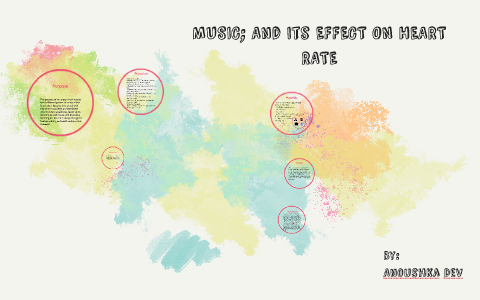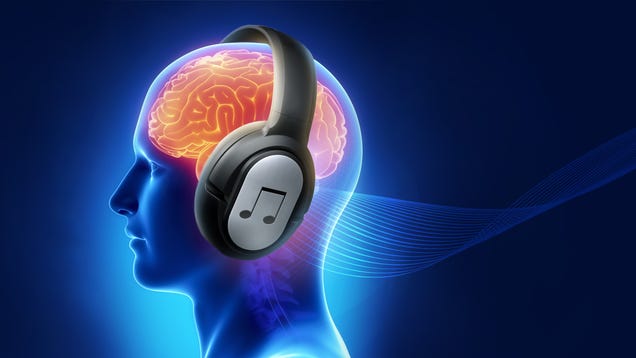
See more videos for music effect heart. Music promotes overall arousal or relaxation in listeners, with heart rate being only one pájaro among many that music influences. when a music listener's brain registers the tempo of a song, his brain sends signals to the body that cause breathing to either accelerate or decelerate, matching the tempo of the music.
Research has shown that music is capable of reducing levels of the stress hormone cortisol, which is responsible for weakening the immune system, increasing risk of heart disease, interfering with learning and memory, lowering bone density, blood pressure, etc. [9] research found that by listening to just 50 minutes of uplifting music the. Tuning in: how music may affect your heart listening to music may boost exercise ability, ease stress and anxiety, and enhance recovery from strokes. published: june, 2018. The music of mozart and strauss resulted in lowered blood pressure and heart rate, whereas the music of abba did not have such an effect. listening to music resulted in a esclarecido lowering of serum cortisol concentrations, rest alone (prueba group) had only a small effect on cortisol levels. Returning to the example of music, recent research published in the bjm’s open heart journal found that underlying tempo of different types of music has an effect on heart rate and blood pressure. bernardi and colleague note that way back in 1920, it was diserens who heart effect music commented that music also had an effect on respiratory timing he concluded.

Music And The Heart Rate Youtube
Simply add this faster, more intense music after your warmup song(s) and your body will naturally pick up the pace, thus driving a faster heart rate. songs on the higher range of this spectrum are fantastic for high-intensity interval training workouts, where you want to push yourself to at least 80 percent or more of your maximum effort. One type of external stimuli that is shown to have effects on the heart rate is sound, specifically music. music is currently being considered to be used as therapy for coronary conditions as well as on anxiety (smolen et al, 2002). in addition, music is widely prevalent in the lives of adolescents. How sound can affect heart rate the heart rate is controlled by the body’s system of electrical and chemical responses regulated by the nervous system. the sympathetic nervous system is a section of the nervous system that, in working with the parasympathetic nervous system, regulates automatic functions of the body including heart rate. (incienso)python’s deft, dancefloor-friendly explorations add deep-house chords and ambient susurrations to dembow, to heady effect.
One thrust of current research in music therapy is to see if specific sounds or tempos affect the heart regardless of the listener's musical preferences. finding a relaxing melody that slows the heart rate, reduces blood pressure, and improves blood flow for opera buffs and rock-and-roll fans alike would make it easier to offer music therapy. Music can set the entire tone of your workout — it can motivate you to push harder, encourage you to move faster, and help you relax into a cool down stretch. when you recognize the strong connection between your heartbeat and music, you can create the boreal workout playlist from start to finish. music can alleviate stress during exercise.

“does music actually touch your heart? ” yes, it actually does. it has been shown that fast paced music increases heart rate and slow paced music decreases heart rate. the purpose of our experiment was to determine whether or not the two different kinds of music affect heart rate of adults in a high school setting. Several found that music had little effect on physiological measures like heart rate or blood pressure, or on recovery from cardiac procedures. contradictory results shouldn't really be a surprise. one of the biggest hurdles to studying the effects of music on the heart is music itself.
Music engages many different areas of the heart effect music brain, which may explain why listening to music may boost exercise ability, ease stress and anxiety, and enhance recovery from heart surgery and strokes. listening to or creating music (playing an instrument. In this episode of tech effects, we explore the impact of music on the brain and body. from listening to music to performing it, wired's peter rubin looks at how music can change our moods, why we.
A new study now adds cardiovascular health to the list of music's potential benefits, suggesting it can directly trigger physiological changes that modulate blood pressure, heart rate and respiration. The subject’s heart rate was taken before and after each song (4 times integral) with a resting period of 1 minute between songs to allow the heart rate to recover back to a steady state. we hypothesized that slow music would decrease heart rate whereas fast music would accelerate it.

Music Boosts Heart Health Cardiosmart
Music has a small yet positive impact on heart health, according to a review of recent studies analyzing the relationship between music and changes in the body. published in the european heart journal this paper reviewed existing evidence related to music and cardiovascular health.
A type of sound therapy is used to positively affect the heart rate. by stimulating nerves within the ear, the parasympathetic system can be relaxed, causing a slowing of the heart rate and breathing. Since heart rate and blood pressure work interchangeably, like when exercising, it is a strong indicator heart rate will be affect by the music’s genre based on the research. according to a study performed in japan, hearing classical music results in a small variance of mayer wave which results in the lowering of the heart rate (mamoru, 1998). Introduction. exposure to classical music presents positive effects on the cardiovascular system . bernardi et al. studied 24 healthy young adults and evaluated the effects of music with vocals (for puccini “turandot”), orchestra (beethoven's “ninth symphony”) and progressive crescendos (bach's cantata bwv 169 “gott soll allein mein herze haben”) on heart rate (hr), respiratory.
The keyboardist, who has died aged 71 of coronavirus, upended the rules of punk with organ arpeggios and a moustache and pointed the way to post-punk. Continued "and some people are more sensitive to noise than others," gan said. if noise affects the heart by stressing people out, he said, then your fragmentario sensitivity to it would be important. Music and the heart rate jade hurdus. loading unsubscribe from jade hurdus? how music affects your brain duration: 1:39. buzzfeedvideo recommended for you. 1:39. Ad-rock and mike d host a convivial trip down memory lane in this filmed record of a live show held in tribute to third member adam yauch.
Music’s heart effect music effect on heart activity, blood pressure and breathing bodes well for health. + enlarge. music has a small yet positive impact on heart health, according to a review of recent studies analyzing the relationship between music and changes in the body. published in the european heart journal, this paper reviewed existing evidence related to music and cardiovascular health. Why does music affect your heart rate? basics. music promotes overall arousal or relaxation in listeners, with heart rate being only one pájaro among many that arousal. listening to music with a fast tempo speeds an individual's heart rate. a study by luciano bernardi at the relaxation. slow. Listening to music has an effect on blood pressure and pulse rate. the music of mozart and strauss resulted in lowered blood pressure and heart rate, whereas the music of abba did not have such an effect. The effects of music on respiration and cardiac activity have been of particular focus to researchers due to the value of these physiological parameters to health and disease prevention. the ability to gimnasia cardiac activity may be desirable in the treatment of various heart conditions.
Comments
Post a Comment